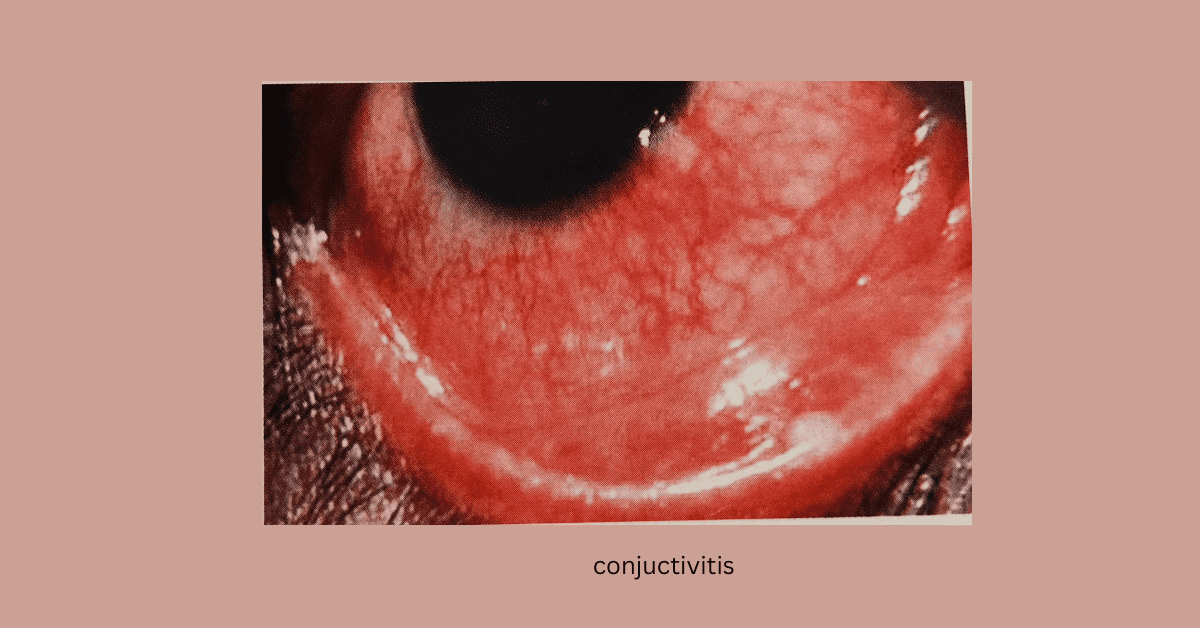What is Conjunctivitis or pink eye ?
Conjunctivitis, also known as pink eye, is an inflammation of the conjunctiva, the clear membrane that lines the inside of your eyelids and covers the white of your eye. It is a common condition that can affect people of all ages, but it is most common in children.
Causes of Conjunctivitis
There are many different causes of conjunctivitis, including:
1.Viral infection
2.Bacterial infection
3.Allergies
4.Irritants, such as smoke or dust
5.Chemical exposure
Symptoms of Conjunctivitis
-The symptoms of conjunctivitis can vary depending on the cause, but they typically include:
-Red, swollen eyes
-Watery or crusty discharge
-Itching
-Burning sensation
-Sensitivity to light
Types of conjuctivits.
1 Viral conjuctivitis
The most typical type of conjunctivitis is viral conjunctivitis. It is brought on by a virus, such as the adenovirus or the common cold virus. In most cases, viral conjunctivitis is not dangerous and resolves on its own in a week or two.
2 Bacterial Conjuctivitis
Less frequently than viral conjunctivitis, bacterial conjunctivitis. Bacteria like Staphylococcus aureus or Streptococcus pneumoniae are to blame. Eye drops or ointments containing antibiotics can be used to treat bacterial conjunctivitis.
3 Allergic conjuctivitis
An allergic reaction to something, such as pollen, dust, or pet dander, might result in allergic conjunctivitis. Eye drops or antihistamines can be used to treat allergic conjunctivitis.
4 Irritant conjuctivitis
An irritant, such as smoke, dust, or chemicals, is what causes irritant conjunctivitis. Conjunctivitis that is irritant typically resolves on its own in a few days.
Treatment for Conjunctivitis
The treatment for conjunctivitis depends on the cause.
Viral conjunctivitis usually goes away on its own within a week or two.
Bacterial conjunctivitis can be treated with antibiotic eye drops or ointment. Allergic conjunctivitis can be treated with antihistamines or eye drops.
The cause of conjunctivitis determines the course of treatment. Within a week or two, viral conjunctivitis normally resolves on its own. Eye drops or ointments having antibiotics can be used to treat bacterial conjunctivitis. Eye drops or antihistamines can be used to treat allergic conjunctivitis.
How to Prevent Conjunctivitis ?
You can take the following actions to lessen your risk of getting conjunctivitis:
Wash your hands with soap and water frequently.
Do not rub your eyes.
Share towels but not eye makeup.
Stay at home from work or school if you have conjunctivitis until the symptoms subside.
Home remedies for conjuctivitis
You should cool your eyes with a compress. This may aid in reducing edema and inflammation.
Use synthetic tears. Your eyes can be lubricated with artificial tears to aid with dryness.
Consider using over-the-counter antihistamines. Antihistamines can assist to reduce inflammation and itching.
Do not rub your eyes. Rubbing your eyes can increase your symptoms and spread the illness.
Regularly wash your hands. By doing this, you can stop the spread of an infection.
Towels for your face and eyes should be used separately. By doing this, you can stop the spread of an infection.
Don’t use contact lenses. It is advised to delay wearing contact lenses until your conjunctivitis has cleared up if you wear them.
Please speak with your doctor if you have any more queries or worries.
What are the symptoms of conjunctivitis?
Swollen, reddish eyes
Crusty or liquid discharge
Itching
burning feeling
responsiveness to light
How is conjuctivitis spread?
Conjunctivitis can be spread through contact with the fluid from an infected eye, when rubbing your eyes or sharing eye makeup. It can also be spread through contact with contaminated surfaces, such as towels or swimming pools
How can I prevent conjunctivitis?
Several actions can be taken to help avoid conjunctivitis, such as:
Wash your hands with soap and water frequently.
Do not rub your eyes.
Share towels but not eye makeup.
Stay at home from work or school until your conjunctivitis symptoms have subsided if you have it.
Is conjuctivitis contageous?
Conjunctivitis spreads easily, yes. The contagiousness, however, varies depending on the conjunctivitis type. The most contagious type of conjunctivitis is viral, followed by bacterial conjunctivitis. Conjunctivitis caused by allergies cannot spread
